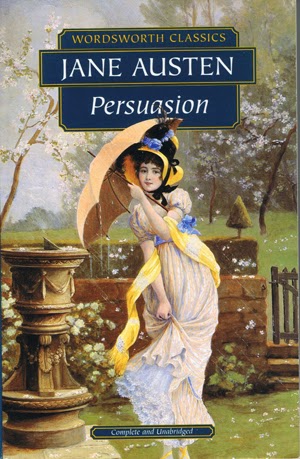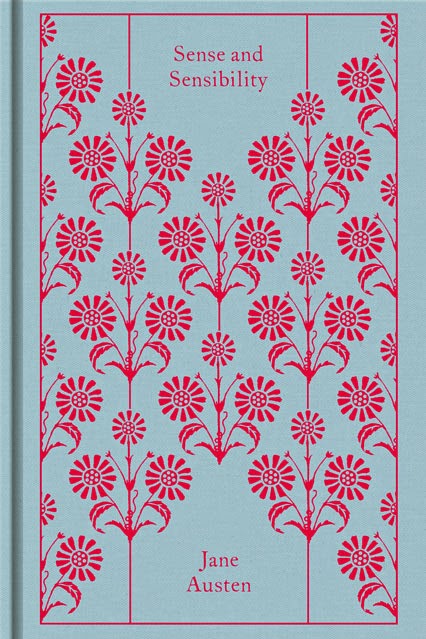Jane Austen
Sense and Sensibility
1811
1813
Emma

1815
Northanger Abbey
1818
Tags: ladies & gents' courtship dance, close quarters, gothic interest, 19th-century society, roman de mœurs, gender relations, famille & land

Persuasion
1818
This is one of Austen’s more ‘tamed’ work. The book offers a study of the dilemma between reasonability and influenceability, and ends up, like all Austen, praising nuance. The heroine is restrained in her emotions, with an acute awareness of social do’s and don’ts, to the point of making you yell at her in despair. You’ll understand it, this is a story in which you can’t help but invest. With a cast of characters to die for, from the comic relief to the ‘grip-your-own-hair’ type (that’d be the heroine), the book offers a nice balance of wisdom, stock characters, social observation, suspense, indignation, comedy, and annoyance. This is a complete work, more well-rounded in its study than Northanger, if perhaps less witty. The characters are attaching, they feel real and simple, closer to a 21st-century audience than Austen’s other works.
This is one of Austen’s more ‘tamed’ work. The book offers a study of the dilemma between reasonability and influenceability, and ends up, like all Austen, praising nuance. The heroine is restrained in her emotions, with an acute awareness of social do’s and don’ts, to the point of making you yell at her in despair. You’ll understand it, this is a story in which you can’t help but invest. With a cast of characters to die for, from the comic relief to the ‘grip-your-own-hair’ type (that’d be the heroine), the book offers a nice balance of wisdom, stock characters, social observation, suspense, indignation, comedy, and annoyance. This is a complete work, more well-rounded in its study than Northanger, if perhaps less witty. The characters are attaching, they feel real and simple, closer to a 21st-century audience than Austen’s other works.



No comments:
Post a Comment